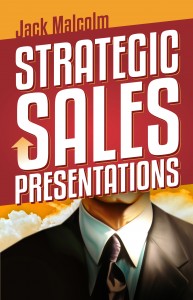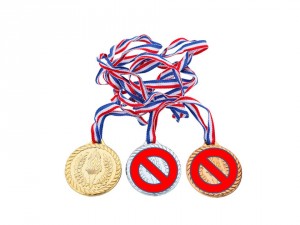Good ideas, like good products, rarely sell themselves. Someone needs to present them in the right way to the right people at the right time, and the three people mentioned in the title above have all had important and useful things to say about how to do that.
In my new book, Strategic Sales Presentations, I’ve made it a point to search for the best ideas from history, science and business and combine them into a unique and powerful approach to strategically sell ideas to high-level decision makers. It’s a skill that will propel your career, regardless of whether you’re officially in sales or just want to sell your ideas to others.
Aristotle was the original—and still the best—presentations trainer in history. Classical Athens was a direct democracy, which meant that if you wanted to get something done, or defend yourself from a lawsuit, you had to speak directly to an assembly of citizens. There were no lawyers, lobbyists of PowerPoint; it was just you and your eloquence facing an audience as large as 10,000 strong, so it was important to know how to get attention and sway an audience.
Fortunately in those days you could turn to one of the first presentations trainers. Aristotle wrote the best training manual for speakers—The Rhetoric. His major contribution, which still applies today, is the proper use of three principal avenues of persuasion, logos, pathos, and ethos. He realized that the persuasiveness is a function of both the message and the messenger. The strength of the message depends on appealing to the listeners’ hearts and minds through logic[1] and emotional connection, and the credibility of the messenger is earned by who they are and what they do. In the book you will learn how to choose the right mix of solid evidence, present it compellingly and engagingly, while personally conveying executive presence and credibility.
Fast forward a couple of millennia, and we can use modern science to further refine some of Aristotle’s ideas. Daniel Kahneman, the only psychologist to ever win the Nobel Prize in economics, teased out the complex relationship between two main modes of thinking that audience members apply when listening to a presentation. System 2 is the slow, logical deliberative process that we all admire as the ideal of business decision-making, and System 1 is the rapid, intuitive and unconscious undercurrent of thought that exerts a powerful and sometimes overriding influence on our real-life decisions. Executive decision makers try to be exceedingly rational in making important business decisions, but even they can be influenced by how choices are framed, for example. Even they use shortcuts when the choices become too difficult. For example, Kahneman’s substitution principle states that when a question is difficult to answer (e.g. will this multi-million dollar investment return an acceptable ROI?), they will frequently substitute an easier question (e.g. do I trust this person who is telling me it will?).
Although history and science have a lot to teach us about effective presentations, no one in business will be really convinced until they see how successful business leaders embody the ideas in the book. Jack Welch and Steve Jobs are certainly on anyone’s short list of greatest business leaders of the past fifty years. They teach us that regardless of how strong your solution is, or how prestigious the company you represent, your performance during those critical moments in front of some of the toughest audiences in the world can make a big difference. Their regimen for preparing for important presentations should teach us and inspire us to put in the same painstaking and relentless effort and attention to detail they do.
Besides these important teachers, the book also contains ideas and advice from some people that I consider even more important. A lot of senior executives that I’ve had the privilege of working with have also made valuable contributions to Strategic Sales Presentations, graciously consenting to be interviewed and pass on their perspective. (Although I suspect some of them did it out of self-interest—because they’re tired of sitting through boring, mistake-filled presentations.)
The book closes with a reminder that greatness as a presenter is within your reach, if you’re willing to put in the work. Because he started it, Aristotle also gets the last word in the book: “We are what repeatedly do. Excellence, then, is not an act but a habit.”
[1] Since he also wrote the first book on logic, I guess you could say he was a full-service training provider.





